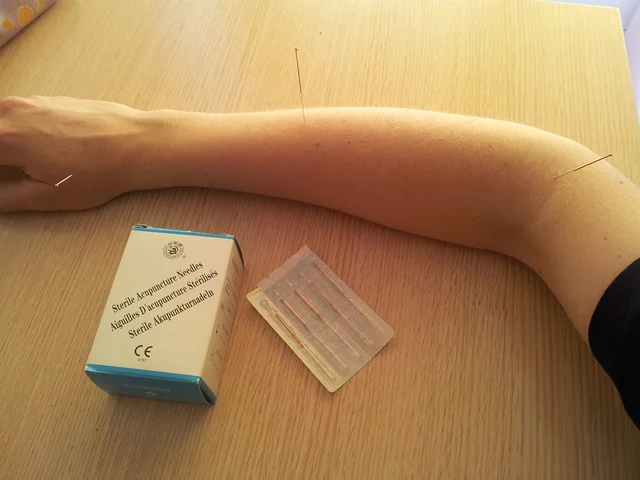What exactly is Acupuncture?
One ancient Chinese medical technique, acupuncture involves inserting small needles in specific areas of the body. Acupuncture can be used for a wide range of conditions, such as headaches, nausea, digestion problems and pain. It has been used for thousands of year, although its effectiveness is still disputed. However, millions continue to use it all over the globe.
It is believed that acupuncture originated in ancient China as a form of effective medicine. It is believed that energy pathways, called "meridians", run through the body. These are linked to many organs. Practitioners believe they can promote healing and balance by stimulating these pathways using needles.

Acupuncture's Benefits
Recent research has shown that acupuncture may have benefits in certain cases. Research has demonstrated that acupuncture is effective at treating various digestive conditions, such as pain relief, sleep quality improvement, and improving the quality of sleep. It has been proven that acupuncture can reduce anxiety and stress, increase mood and aid in addiction recovery.
Acupuncture has many benefits, including:
- Relief from pain
- Better sleep quality
- Stress and anxiety reduced
- • Improved mood
- Recovery from addiction
- Digestive disorders
Acupuncture Side Effects
Acupuncture is considered to be safe but there may be side effects. Minor bleeding, bruising and soreness around the point of needle insertion are some possible side effects. Although rare, serious side effects like infection or organ damage can happen if the needles and practitioner aren't sterilized properly.
Acupuncture is not meant to replace conventional medical care. A doctor will prescribe other treatment options.
Viewpoints of Experts and Pros
Experts and professionals differ on the effectiveness of acupuncture. Some are skeptical about its efficacy, while others see it as an essential part of a complete treatment plan. Experts agree that acupuncture is effective in relieving chronic pain. Others argue it can also be combined with other traditional treatments to enhance overall health.
Experts agree that acupuncture is a part of a comprehensive approach to wellness and health. Remember that acupuncture should not be considered a panacea and must be used with other therapies.
Acupuncture: How to Get Started
The first thing you should do if you want to try acupuncture is find a good practitioner. Search online to find local practitioners, or contact your doctor for recommendations. You will have to share your medical history with the practitioner before you can begin treatment.
The practitioner will conduct a thorough medical exam and take your history. The practitioner will use small needles to stimulate certain points on the body. The needles will be inserted below the surface of the skin and should remain there for between 10-20 minutes. You may experience a slight sensation of tingling or no sensation at all during this period.
The practitioner will then remove your needles after the session has ended. Many people feel relaxed after receiving treatment. You should remember that no single session will bring immediate results. Multiple sessions are often necessary to achieve lasting changes.
How to make Acupuncture easier and quicker
For those new to acupuncture, it can seem daunting. These tips will make it easier for you to have a smoother experience.
- Do your homework before you make an appointment.
- Accept the journey - It may take several sessions for you to begin to notice results.
- Talk to your doctor about any concerns. Let them know what you think so that they can help.
- Breathe deeply and relax - This will help you to calm your mind and body.
- Regular appointments are important if you want to reap the benefits of acupuncture.
Acupuncture Examples
Acupuncture uses thin needles made of metal that are used to puncture the skin at certain points on the body. The practitioner will determine the points and they may vary from one person to another. To further stimulate these points, the practitioner might use heat, pressure or electrical stimulation.
The practitioner will place the needles in the acupuncture points and then leave them there for between 10-20 minutes. The practitioner can manipulate the needles gently or use heat or electricity to stimulate further the points. The needles will be removed after the session has ended.
Alternatives to Acupuncture & Why Acupuncture is Better
Alternatives to acupuncture include massage therapy, Chiropractic , and herbal remedies. Although each approach has their own benefits, acupuncture is the most effective for many. It is non-invasive and safe for a wide range of conditions. Acupuncture can also be combined with other therapies to increase the effectiveness.
Acupuncture is not a treatment that requires medication, nor does it require any invasive procedures. It is a great option for people who want a holistic and natural approach to their health and wellbeing. A variety of ailments, such as pain and insomnia, have been treated with acupuncture.
Conclusion
One ancient Chinese medicine, acupuncture has been practiced for many centuries in order to treat various ailments. While its effectiveness is questionable, evidence suggests that it can be helpful in certain cases. Important to remember that acupuncture shouldn't be considered a replacement for traditional medical care. It should be used alongside other therapies.
There are many benefits to acupuncture, such as pain relief, better sleep quality, decreased stress and anxiety and improved mood. Although there may be some side effects to acupuncture, they are generally minor and easily avoided by working with a trusted practitioner. Acupuncture can improve overall health and well-being.